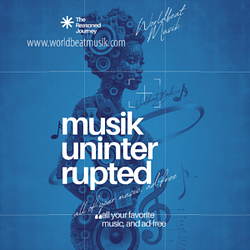There’s a kind of forgiveness that walks like a shadow in the room, a forgiveness that speaks not to healing but to control. It slips in softly, cloaked in the language of grace and mercy, but what it does is more like a silencing than an absolution. Forgiveness without accountability—now, that’s where power hides.
We have been taught, or maybe more accurately told, that to forgive is to be good. But in this hurried forgiveness, we rarely stop to ask: What does this goodness cost? To forgive is supposed to be a sacred exchange, a shared understanding that moves through confession, repentance, and change. Yet, what happens when the wrong goes unnamed, when the harm is left untouched, and the one who caused the hurt is asked for nothing in return? There is an unsettling quiet in that kind of pardon—a silence where truth should be.
Forgiveness becomes an act of forgetting. And when we are asked to forgive too soon or too easily, we are not being asked to free ourselves from anger or bitterness. We are being asked to let go of the truth, to erase the wound before it has even begun to heal. There is control in this kind of forgiveness, a quiet coercion to move on, to smooth over, to keep the peace. But peace without justice is no peace at all; it’s an illusion built on silence, a fragile surface waiting to crack.
We see this play out in the everyday, in the personal and the public. We are told to forgive those who wound us, to offer a clean slate even when the hands that scarred us are still dirty. The world is quick to ask for our grace, but where is the demand for accountability? Where is the insistence that those who harm must reckon with the harm they’ve done? For some, the act of forgiving without accountability feels like survival, a way to maintain control when all else is lost. It feels like power to say, “I forgive you,” but there is an emptiness to it when the wrongdoer has never acknowledged their wrongdoing. The danger in this is subtle, but it runs deep—offering forgiveness without asking for accountability leaves the system intact, the harm unchallenged. It allows the powerful to remain powerful, the harm to continue unchecked, and the forgiver to carry the burden of forgetting what should never be forgotten.

The forgiveness without accountability trend is gaining traction in a world obsessed with quick resolutions. Social media teems with calls for peace, for understanding, for “moving on.” But moving on from what? From whom? Who gets to decide when it’s time to forgive, and who benefits from forgiveness without accountability? These are the questions we need to ask as we navigate a world that is too often content with surface-level apologies, with performative contrition, and with the erasure of those who speak out against harm.
When we look at the broader social landscape, we see this demand for quick forgiveness in the face of racial injustice, in the aftermath of abusive relationships, in workplaces where power dynamics leave little room for true reparations. We see it in communities where harm is named but never truly addressed, where people are asked to forgive as a way of keeping the system from crumbling. But systems that rely on unaccountable forgiveness are already crumbling from within.
This is not to say that forgiveness has no place in the process of healing. In its truest form, forgiveness can be a profound and liberating act. It can break the cycle of harm, offering a path forward that honors both the forgiver and the forgiven. But that kind of forgiveness—the kind that transforms rather than controls—requires accountability. It requires the wrongdoer to step into the truth of their actions, to carry the weight of their choices, and to actively participate in the repair of the damage they have caused.
Forgiveness without accountability is dangerous because it asks us to pretend that harm does not exist, to bypass the necessary work of reckoning with what’s been broken. It asks us to forgive, but not to change. And without change, the harm continues. We have to be honest about this: forgiveness without accountability is not a virtue. It is a silencing, a way to maintain power structures that benefit the privileged while leaving the vulnerable without the justice they deserve.
True forgiveness is not passive. It does not shrink from truth. It stands firm in the face of injustice and says, “I see what you’ve done, and I will not let you forget it.” True forgiveness demands that we hold both ourselves and others accountable. It demands that we look each other in the eye and name the harm that’s been done, that we sit with the discomfort of it, that we don’t rush to move past it.
To forgive without accountability is to relinquish the power of truth. It’s a control that masquerades as kindness but leaves us empty-handed in the end. If we are to move toward healing—as individuals, as communities, as a society—then we must stop asking for forgiveness without the courage to face the consequences of our actions. We must reject the illusion of control and embrace the hard, necessary work of accountability. Only then will forgiveness have the power to truly set us free.
Discover more from The Reasoned Journey
Subscribe to get the latest posts sent to your email.


